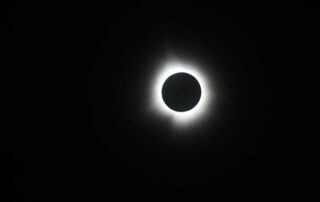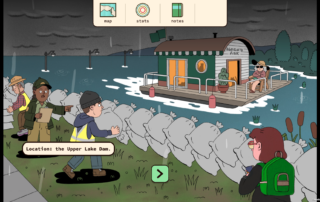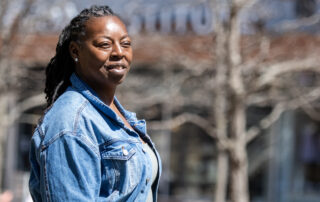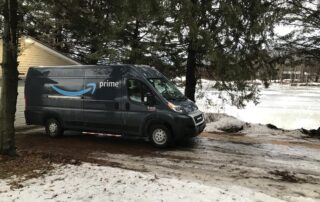In the wake of the Pandemic, UW-Madison geology Ph.D. student Ethan Parrish and Vertebrate Paleontologist Dave Lovelace Ph.D. sparked a conversation to make their scientific disciplines more inclusive.
The pair met after Lovelace saw an educational video by Parrish, who along with being a geologist is also a filmmaker and believes that digital media is a powerful tool for communicating science.
In his research, Parrish mainly looks at ancient lakes and river systems. Around the same time he connected with Lovelace, he was working on naming a river that existed over 50 million years ago. He wanted to name the river in collaboration with the Eastern Shoshone Cultural Center.
“I wasn’t gonna do it because I was getting a lot of pushback from colleagues and then as Dave and I talked about what he was trying to do it kind of reinvigorated me to keep pushing for that,” Parrish says. “I ended up getting the river named in Shoshone, called the Toya Puki river meaning mountain fan.”
He recalls the importance of working collaboratively with native groups not only in the scientific process but also in the naming process.
As a paleontologist, Lovelace is constantly talking about different organisms like plants and animals of various sorts but all of these creatures have a name and are a part of the world we live in.
“I think names are pretty critical to how we think about and talk about them, they have meaning,” Lovelace says.
In his work, he found specimens and animals that needed a name. Often times these names are fun or meaningful but most commonly they’ve been named after academic ancestors as a way of honoring their legacy.
“The thing is that that process is laden with colonialism, with all sorts of historical artifacts that are not inclusive,” Lovelace says.
Scientists like Lovelace and Parrish realize that the sciences are not inclusive and that names hold meaning and information. They are working on moving away from using the names of people to places as a way of honoring the land.










